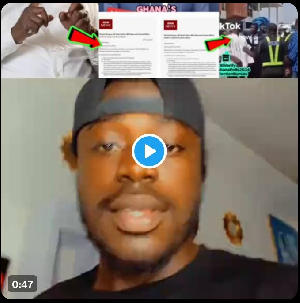



According to reports, the BBC has controversially labeled John Mahama, the president-elect of Ghana, a "violent leader." This is a surprise development. This claim sparks debates about Mahama's management style and the political environment that will shape the next administration. Such accusations could have a big impact on public opinion and the political conversation in the upcoming months as the country prepares for change.
A flurry of responses have been generated by the BBC's portrayal on a number of platforms, with numerous political experts and observers demanding context and clarification on this grave allegation. In an effort to change public opinion before the next government takes power, Mahama's detractors have used the accusations to support their positions. Undoubtedly, this term creates the conditions for contentious discussions in the media and among the general public, while the full effects are still unknown.
In addition, political personalities like Kwaku Smoke, Ursula Owusu, and Kevin Taylor have started to express their thoughts on the subject, each with a unique perspective. Given the existing tense political climate, this move may deepen rifts or require the ruling and opposition parties to reconsider their approaches. Beyond Mahama, the implications of this name could be felt by both party members and supporters as they negotiate their own stances in the face of such grave accusations.
Leaders and public must continue to have a dedicated conversation about the future while Ghanaians wait for a peaceful handover of power. In the end, constructive discussions on integrity, accountability, and governance can promote a more positive political climate. The BBC's designation raises concerns, but it also offers a chance for introspection and development in the nation's democratic processes by guaranteeing that leaders are held to high standards of behavior, which all citizens should strive to demand and uphold.
https://x.com/DontdoYawa/status/1869750193929011350?t=YVKkPgaEv5L2S58f2caE3g&s=19